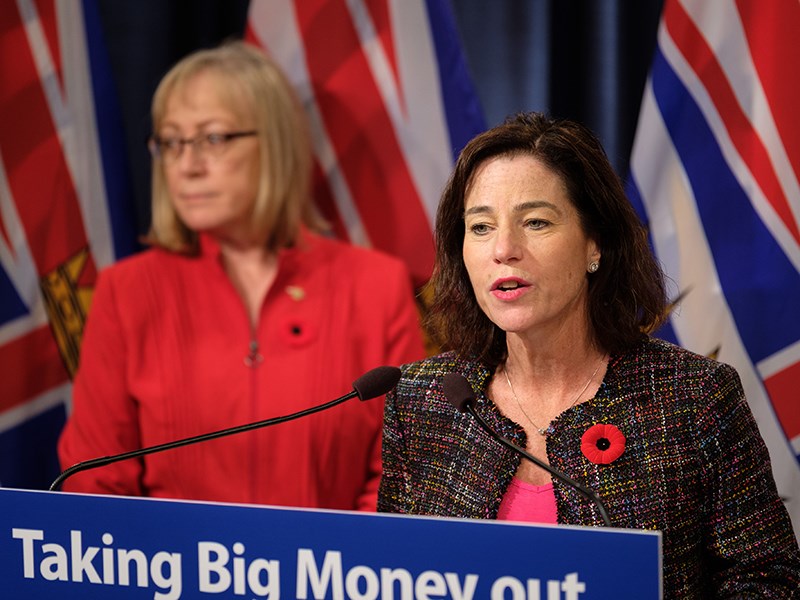Candidates in next year’s civic election could be relying more on individual donations if the province’s proposed ban on union and corporate donations becomes law.
More than half of the money used to run political campaigns in City of Powell River’s 2014 civic election came from union or corporate donations, according Elections BC financial disclosure reports.
BC minister of municipal affairs and housing Selina Robinson announced the proposed legislation changes for campaign finance in local government elections on October 30. Before the changes are enacted they need to be debated and passed in the provincial legislature.
City of Powell River councillor Russell Brewer said legislation is needed to regulate donations being provided by unions and corporations in the province’s larger city races.
“I don't think it'll have much of an impact here,” said Brewer. “There's not a lot of money that flows from union and corporate donations.”
Brewer said candidates operating under the new law will be have to look elsewhere for financial support for their campaigns.
“It'll just force people, if they need to fundraise, to pursue those individual donations,” he said.
A tally of registered political donations to the 14 city council candidates during the 2014 local election showed that of $30,235 donated to candidates’ campaigns, a little more than half, came from union and corporate donations.
Unions including Canadian Union of Public Employees (CUPE) and International Association of Fire Fighters (IAFF) contributed $7,950 in total donations to various candidates, while corporations such as Futurevest Investment Corporation and Augusta Recyclers provided $7,475.
Contributions from individuals and non-corporate businesses accounted for $14,810.
Proposed amendments to the Local Elections Campaign Financing Act will prohibit unions, corporations and non-BC residents from donating to candidates and place limits on individuals donating to third-party advertisers or elector organizations that endorse a slate of candidates.
Contributions limits will be set to $1,200 per year for individuals.
Brewer, who received the most votes in the 2014 election, was one of the candidates who spent the least on their campaign. Brewer ran his 2014 campaign on $630, with a $300 donation from IAFF and the rest from a donation to himself, according to Elections BC reports.
Brewer said after looking at various union and corporate donations in the 2014 Powell River election none of the donations to a single candidate, elected or not, were large enough to be significant.
“I don't think the donations have a big influence on individuals,” he said. “CUPE offered money, but I didn't take it. For me, it's a perception issue at a small, local level such as ours.”
Brewer said donations may have an impact if a candidate is enticed to run through financial backing.
Councillor CaroleAnn Leishman, who received close to $1,700 in union and corporate donations in 2014, said the public may perceive a candidate who has taken union or corporate donations as beholden to his or her donors, but candidates do not necessarily feel that way.
“I don't think a lot of people would actually feel obligated, but there's that perception,” said Leishman.
Mayor Dave Formosa, who did not have to run in the 2014 because he was acclaimed, said in the 2008 and 2011 elections he preferred to self-fund his campaign because of that perception issue. He added that, for most people, not acting on behalf of or taking political direction from donors is a matter of personal integrity.
Leishman said the proposed ban will not have much impact in Powell River because the most effective way to gain votes does not require money, just time.
“Go talk to people; go knock on the door and ask people what their concerns and issues are,” said Leishman. “Put out a couple signs in strategic locations, but get out there and talk to people and be available for the public. That's the most effective thing to do.”
The next local government elections will be held October 20, 2018.



